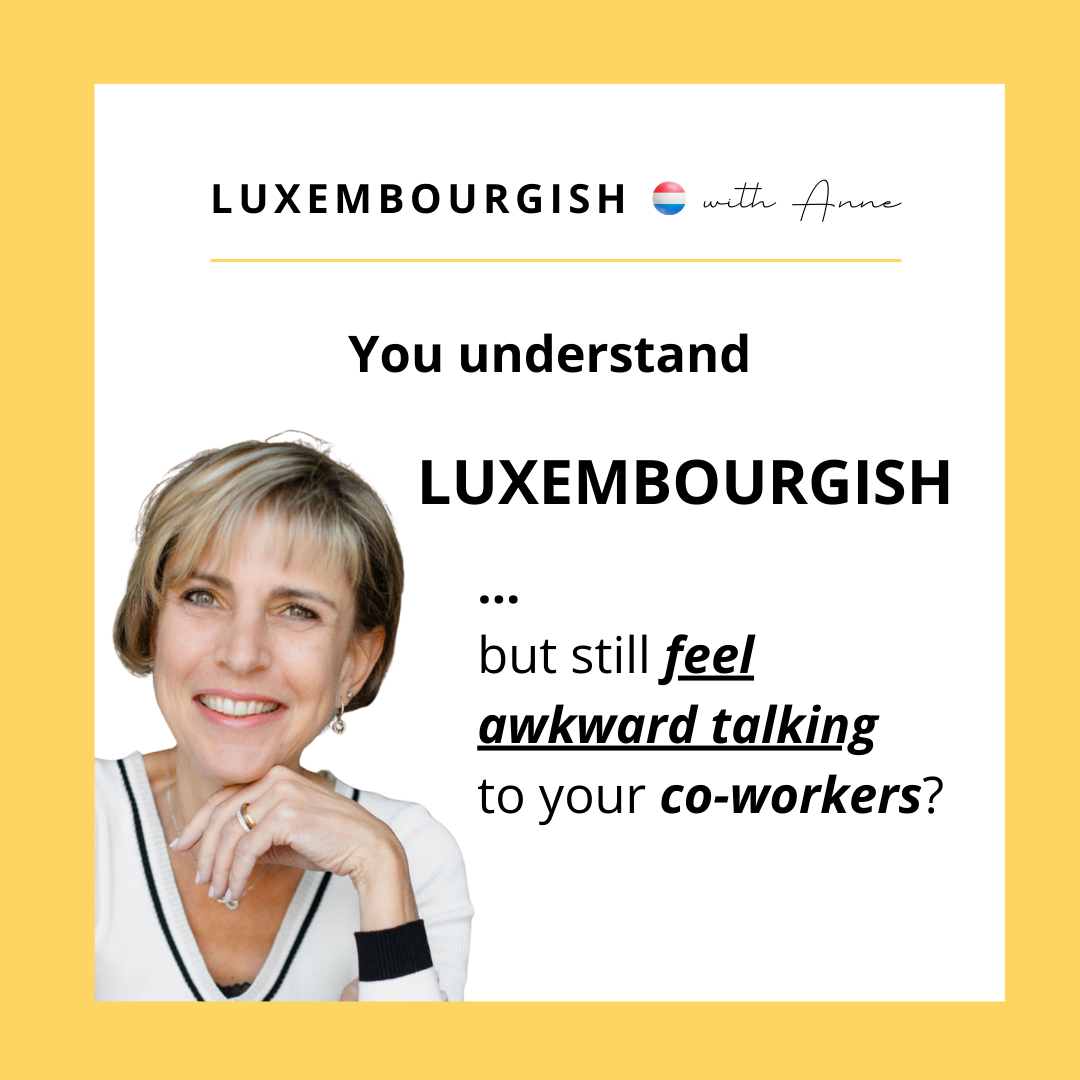To compare things you need adjectives such as kleng, schéin, kal …
To say in Luxembourgish that something is for example “smaller” or “faster” you’ll always add the following word before the adjective:
méi
Beispiller (examples):
kleng (small) – méi kleng (smaller)
kuerz (short) – méi kuerz (shorter)
séier (fast) – méi séier (faster)
nei (new) – méi nei (newer)
deier (expensive) – méi deier (more expensive)
léif (nice) – méi léif (nicer)
kal (cold) – méi kal (colder)
When talking about two things, we can compare them. We can use
comparative adjectives to describe the differences. In Luxembourgish
we use these 3 constructions:
méi …. wéi – manner … wéi – grad esou …wéi
méi … wéi = more than
manner … wéi = less than
grad esou … wéi = as ….as
Beispiller (examples):
- Mäin Appartement ass méi kleng wéi däin Appartement. – My appartement is smaller than your appartement.
- Haut ass et méi waarm wéi gëschter. – Today it’s warmer than yesterday.
- Deng rout Blus ass grad esou schéi wéi deng wäiss. – You red blouse is as beautiful as the white one.
- Mäi Mann ësst elo manner wéi soss. – Now, my husband eats less than I used to.
Exceptions
Here are the 4 most commonly used irregular comparatives
gutt (good) – besser (better)
wéineg (little) – manner (less)
vill (a lot) – méi (more)
Beispiller (examples):
- Dëse Béier ass gutt. Mee mir schmaacht de lëtzebuergesche Béier besser. – This beer is good, but I find the luxembourgish beer better.
- Ech iesse gär Uebstzalot mee ech hu léiwer Glace dobäi. – I like to eat fruit sald but I prefer to have ice cream to that.
- Hei reent et vill, mee ech mengen a Schottland reent et méi. – Here it is raining a lot, but I think that in Scotland it is raining more.
Let’s practise!
Have you read all example sentences above? You need them now to answer the questions below.
- Try to answer the questions in the pauses.
- Repeat this exercise many times.
- With each repetition the patterns will be saved in your long-term memory
Fro 1: Ass mäin Appartement méi kleng wéi däint?
Fro 2: Ass et haut méi kal wéi gëschter?
Fro 3: Ësst däi Mann elo méi wéi soss?
Fro 4: Schmaacht dir dëse Béier gutt?
Fro 5: Ass deng rout Blus méi schéi wéi déi wäiss?
Äntwert 1: Jo, däin Appartement ass méi kleng wéi mäint.
Äntwert 2: Nee, haut ass et méi waarm wéi gëschter.
Äntwert 3: Nee, hien ësst elo manner wéi soss.
Äntwert 4: Jo, mee de lëtzebuergesche Béier schmaacht mir besser.
Äntwert 5: Nee, meng rout Blus ass grad esou schéi wéi déi wäiss
Download the PDF so to practice more in depth what you have learnt in this lesson!
I hope you liked it and found it useful. And …. why not sharing this lesson with your friends:-)
Take your Luxembourgish to the next level with the self-study course





